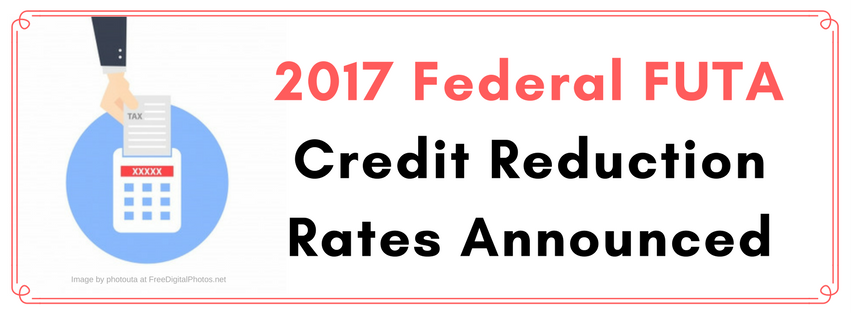Are you an employer who must take into consideration the credit reduction when filing your FUTA tax return for 2017?
A state is a credit reduction state if it has taken loans from the federal government to meet its state unemployment benefits liabilities and has not repaid the loans within the allowable time frame.
If a state has outstanding loan balances on January 1 for two consecutive years and does not repay the full amount of its loans by November 10 of the second year, the FUTA credit rate for employers in that state will be reduced until the loan is repaid.
This year there are only two locations that must pay higher taxes above the regular FUTA rate for 2017. These are California and the Virgin Islands. Each must pay an additional 2.1% tax for each employee’s wages up to the $7000 limit.
The Virgin Islands is also subject to the Benefit Cost Rate (BCR) additional credit reduction formula for having passed five consecutive January 1’s with an outstanding federal advance. The BCR add-on is an additional 1.1%.
The standard FUTA tax rate is 6.0% on the first $7,000 of subject wages, but employers may receive a credit of 5.4% when they file their Form 940 Employer’s Annual Federal Unemployment Tax Return, to result in a net FUTA tax rate of 0.6% (6.0% – 5.4% = 0.6%).
The FUTA credit reduction is reported on the annual 940 tax return. Any increased FUTA tax liability due to a credit reduction is considered incurred in the fourth quarter and is due by January 31 of the following year.
If you have any questions regarding this additional tax, please reach out to us for clarification. And if you no longer want to handle your payroll, contact us to find out how easy it is to get started! Call us today at 310-534-5577.
